Search Results for: Vertebrates
Skip to resultsCan’t find what you’re looking for? Visit our FAQ page.
1,543 results for: Vertebrates
-
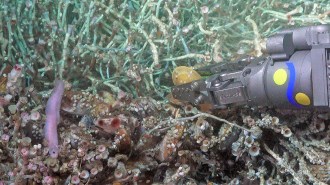 Animals
AnimalsA ‘fire wolf’ fish could expand what we know about one unusual deep-sea ecosystem
Unlike other known methane seeps, Jacó Scar is slightly warmer than the surrounding water and is a home for both cold-loving and heat-loving organisms.
-
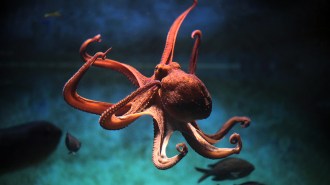 Animals
AnimalsOctopuses and squid are masters of RNA editing while leaving DNA intact
Modifications to RNA could explain the intelligence and flexibility of shell-less cephalopods.
-
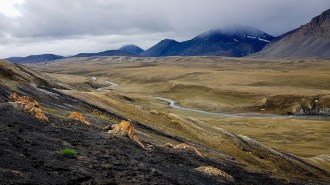 Life
LifeFossils suggest early primates lived in a once-swampy Arctic
Teeth and jawbones found on Ellesmere Island, Canada, suggest that two early primate species migrated there 52 million years ago.
By Freda Kreier -
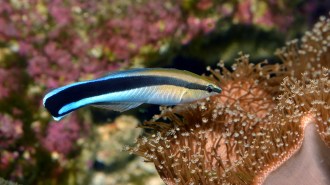 Animals
AnimalsFish can recognize themselves in photos, further evidence they may be self-aware
Cleaner fish recognize themselves in mirrors and photos, suggesting that far more animals may be self-aware than previously thought.
By Betsy Mason -
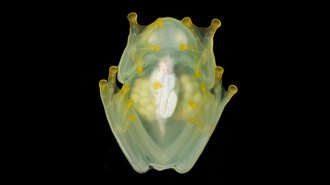 Life
LifeSleeping glass frogs hide by storing most of their blood in their liver
Glass frogs snoozing among leaves blend in by hiding almost all their red blood cells in their liver until the tiny animals wake up.
By Susan Milius -
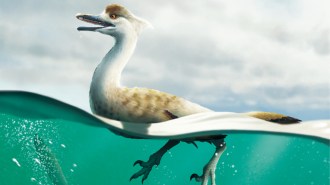 Paleontology
PaleontologyThis dinosaur may have had a body like a duck’s
Natovenator polydontus may have been adapted for life in the water, challenging the popular idea that all dinos were landlubbers.
By Nikk Ogasa -
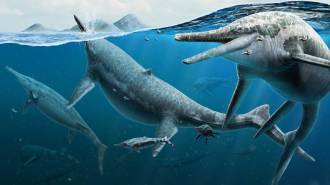 Paleontology
PaleontologyMysterious ichthyosaur graveyard may have been a breeding ground
Some 230 million years ago, massive dolphinlike reptiles gathered to breed in safe waters — just like many modern whales do, a study finds.
-
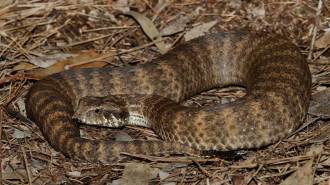 Animals
AnimalsScientists thought snakes didn’t have clitorises. They were wrong
Snakes were long thought to be the only reptile group to lack clitorises. But new findings suggest the sex organs are present after all.
By Jake Buehler -
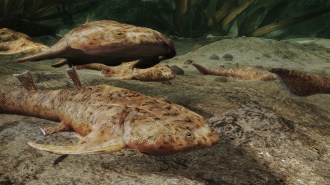 Paleontology
PaleontologyAncient fish fossils highlight the strangeness of our vertebrate ancestors
New fossils are revealing the earliest jawed vertebrates — a group that encompasses 99 percent of all living vertebrates on Earth, including humans.
-
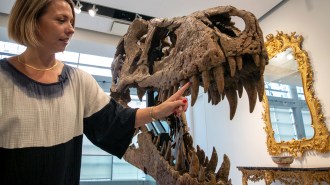 Paleontology
PaleontologyWhy the sale of a T. rex fossil could be a big loss for science
At least half of the roughly 120 known T. rex fossils are owned privately and not available to the public. “Maximus” may join them.
-

-
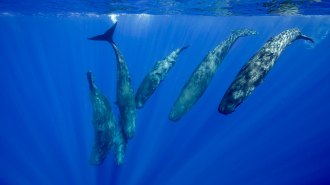 Animals
Animals‘Wonderful nets’ of blood vessels protect dolphin and whale brains during dives
Complex networks of blood vessels called retia mirabilia that are associated with cetaceans’ brains and spines have long been a mystery.